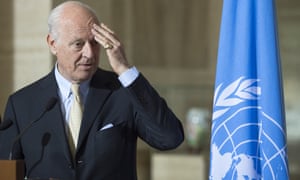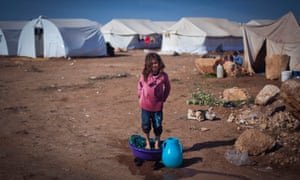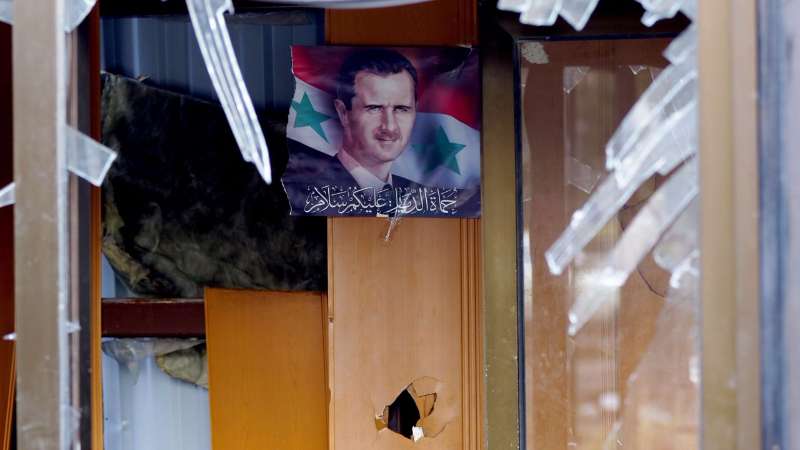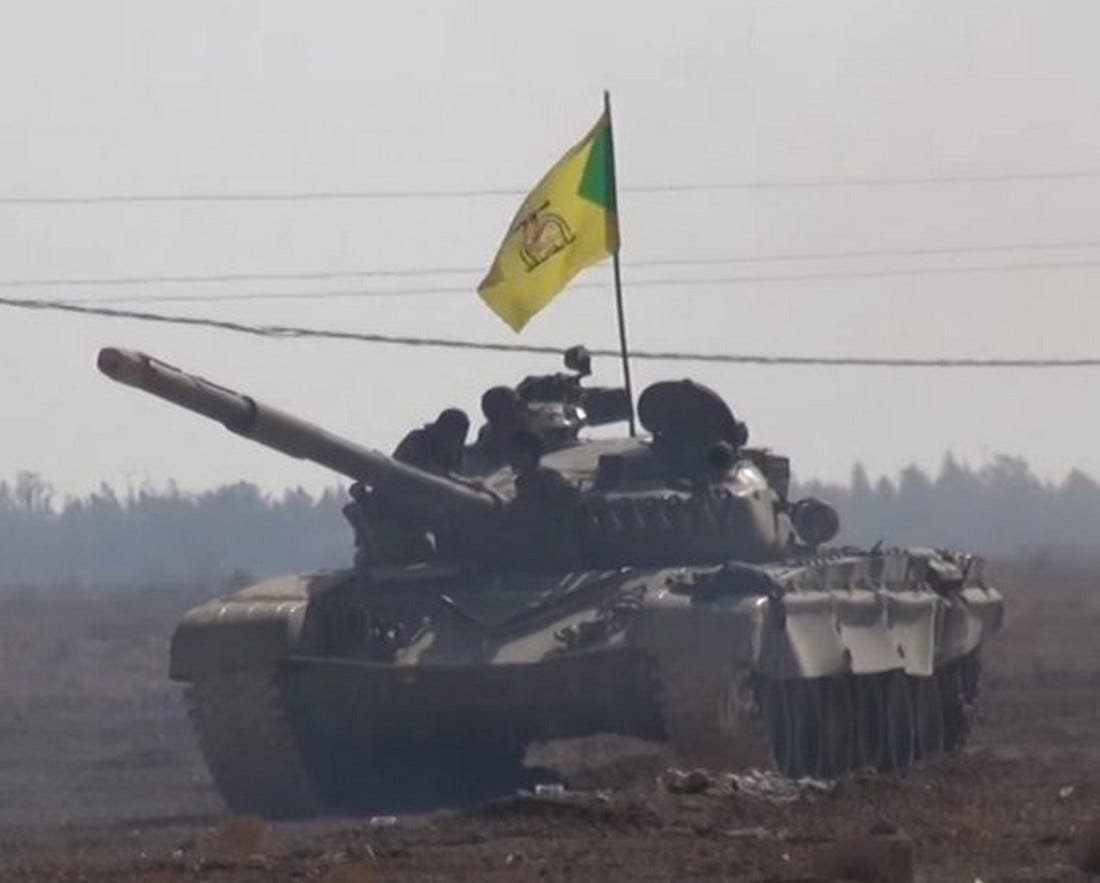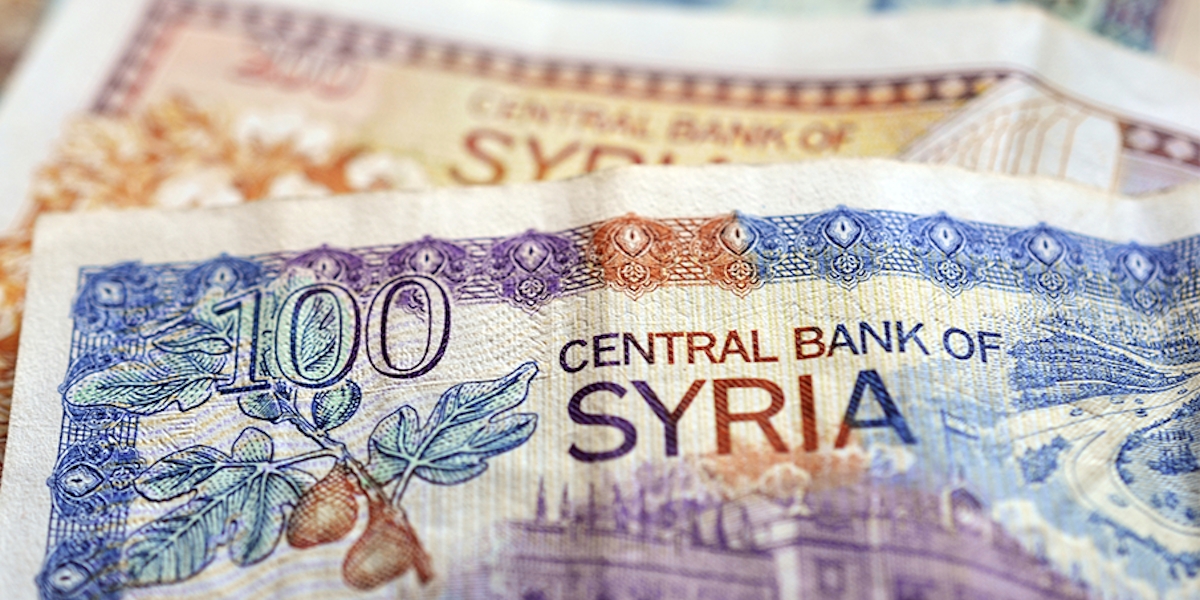 'For almost four years now, eastern Aleppo has been the target of bombing by the Syrian air force, with Russia joining the bombardment as of last September. The cease-fire announced in February only briefly changed the situation. Beginning in April, the Syrian army again increased its targeting of civilians. Prior to the war, thousands of doctors worked in the city, which was once home to a million people. In the eastern part of Aleppo, only around 30 doctors remain today. Osama Abo El Ezz, a 30-year-old surgeon, is one of the few still holding out.
'For almost four years now, eastern Aleppo has been the target of bombing by the Syrian air force, with Russia joining the bombardment as of last September. The cease-fire announced in February only briefly changed the situation. Beginning in April, the Syrian army again increased its targeting of civilians. Prior to the war, thousands of doctors worked in the city, which was once home to a million people. In the eastern part of Aleppo, only around 30 doctors remain today. Osama Abo El Ezz, a 30-year-old surgeon, is one of the few still holding out.
SPIEGEL: Did the April 27 attack on the al-Quds hospital have an impact on you and your work?
Ezz: Absolutely, even if they aren't bombing us, we still run to the cellar every time jets appear over the city. They are able to target much more precisely than they could before when they dropped their untargeted barrel bombs. They were savagely powerful, but they hit their target less often. Today they do hit their targets. And they obviously want to hit and kill the last doctors and nurses in eastern Aleppo.
SPIEGEL: And you? Will you stay on?
Ezz: I won't go. If we doctors leave, we are not only robbing the people of their chance to get medical treatment, but also of the hope that our city will survive. There is no replacement for anyone who leaves or dies. Many people here are being driven crazy by fear and desperation. Children are hysterical and are wetting themselves. The elderly get heart palpitations when they hear the sound of the jets. Three months ago, rockets killed an entire family in the Firdaus quarter, except for the seven-year-old son. We took him to the hospital and treated his injuries, but then we had to tend to the other patients. He suddenly began to shake uncontrollably. He had swallowed all the pills he could find. We were just able to save him.
SPIEGEL: You don't think the attacks are random?
Ezz: No, they never were. I had three colleagues with whom I provided care to wounded protesters starting in 2011. In May 2012, they were arrested together at a regime checkpoint. Seventy-two hours later, residents found three charred bodies that were taken to the coroner. The families of the three then identified them. Any person providing medical aid is risking their life. Why are they killing us? It is not enough for them to kill people every day in Aleppo. They also want to destroy any chance that they can be treated. Assad's regime has swept away the universal idea that doctors should be spared along with all other humanitarian principles. No government cares that we are all being killed one after the other. Human rights and all that? They are empty words. Like all the others who are still staying here, I am nonetheless waiting for the world to stop being indifferent about our fate. What choice do we have anyway? Should we give up and flee?
SPIEGEL: Since the beginning of the revolution, you have campaigned for the release of arrested doctors as well as providing care for the injured. Did you envision yourself being involved in a war, even years later?
Ezz: No. In 2011 I was beaten after protests together with 27 other colleagues and 14 of us were arrested, but we were released again the next day. We founded the network Nur al-Hayat, or Light of Life. We wanted to defend peaceful demonstrations and treat people who had been shot. But then I learned that the military's secret service was searching for me. Colleagues were murdered and I had to abandon my work at the university hospital and go underground. Later we founded the Aleppo Doctors Council and attempted to continue providing medical care.
SPIEGEL: What do you tell your family regarding your decision to remain in Aleppo?
Ezz: My wife and the three children are now living in Turkey. When we speak about it, I always tell them that our life is in God's hands. I hope he will protect me. But if I die in our hospital, at least that is the right place. I could leave the city and die anywhere in the world in a traffic accident. That would be a betrayal of all those who hope that this criminal regime will one day be gone. I don't want my children to grow up as refugees. They should be able to live in Syria as free people.
SPIEGEL: Did you have hope when the cease-fire was announced in February?
Ezz: Of course I had hope. As fragile as this peace may have been, at least the people had a chance to catch their breath after years of fighting and bombing that had indiscriminately hit residential areas, markets, bakeries and hospitals. But of course the attacks have begun again -- and they have been even more intense in recent weeks than they were before. I have lost so many friends and colleagues in the last five years -- and now it looks as though Aleppo, or at least the eastern half of it, is simply going to be destroyed completely.
SPIEGEL: What do you believe to be the purpose of the attacks?
Ezz: To rid Aleppo of all people, just like in Homs. And then to hunt down anyone who has ever stood up against Assad's regime. To not allow the original residents to return, but rather to change the demographics of the city and the entire country -- even if that means the destruction of Syria.'

